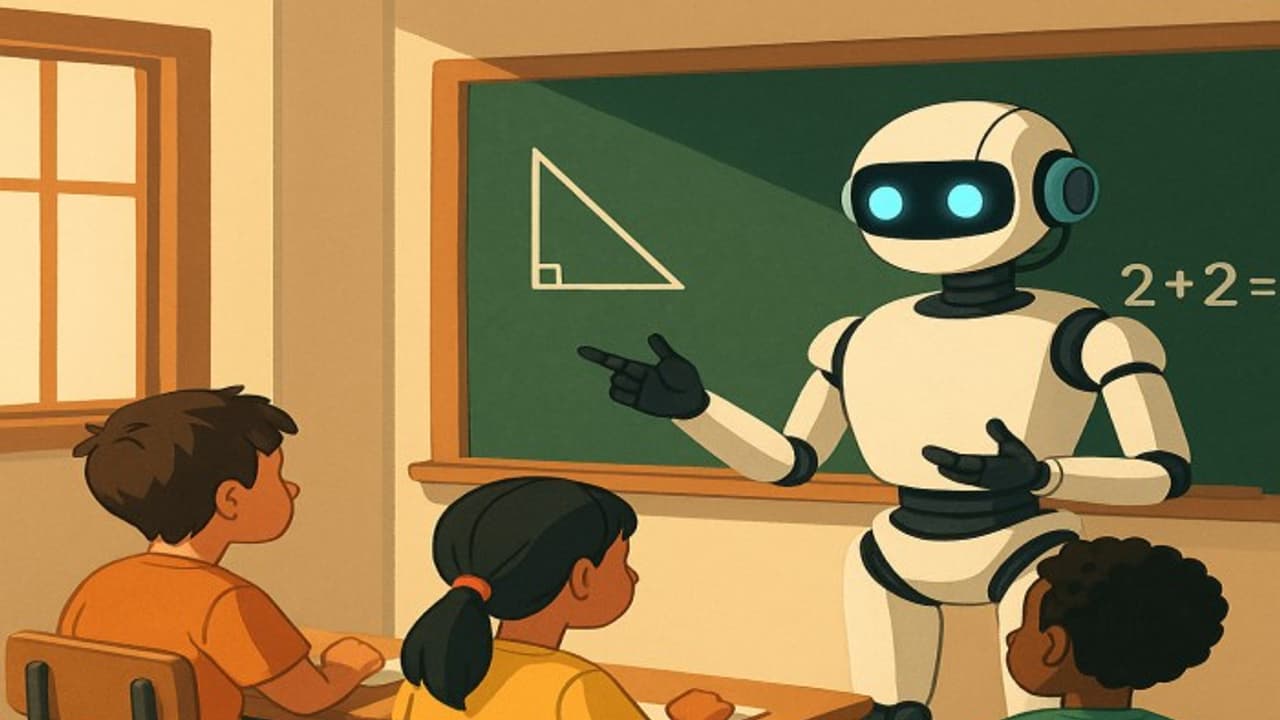Geoffrey Hinton — widely regarded as the “godfather of AI” — has declared that artificial intelligence chatbots will outpace human teachers in educating children more than twice as fast within the next ten years.
Geoffrey Hinton — widely regarded as the “godfather of AI” — has declared that artificial intelligence chatbots will outpace human teachers in educating children more than twice as fast within the next ten years.

Speaking at Gitex Europe in Berlin, the Nobel Prize-winning British computer scientist didn’t mince words. “It’s not there yet, but it’s coming, and so we’ll get much better education at many levels,” he said. Hinton emphasized that AI-powered personal tutors would soon surpass the classroom experience by being “much more efficient and less boring.”
AI tutors capable of real-time conversations and adaptive lesson plans are being piloted in schools across the UK. These systems analyze students' knowledge gaps and tailor their teaching accordingly — an approach that traditional classrooms struggle to replicate amid growing class sizes and overworked educators.
Despite pouring millions into AI education initiatives, government officials insist that AI will “absolutely not” replace teachers. Yet the shift has already begun. Teachers, grappling with mounting workloads, have started integrating AI to handle everything from lesson planning to grading and feedback.
Hinton, who has both championed and cautioned against AI’s trajectory, warned that the coming decades may usher in an era of “super intelligence” — machines that could surpass human intellect. “Scientists and tech firms are creating ‘alien beings’ and we still don’t know how to keep them safe,” he warned.
Nevertheless, Hinton highlighted two areas where AI could revolutionize lives: healthcare and education. In the latter, he believes the transformation will be profound.
“AI will be much better at tutoring people,” Hinton explained. “We already know that if you take a child and give them a personal tutor, they learn about twice as fast as in a classroom, and that’s because a personal tutor understands what it is the child doesn’t understand, and tailors their explanations to what the child’s understanding. AI should be able to do that even better, because AIs will have had experience with millions of children to train. This will come in the next 10 years or so.”
One AI tutor already in action is ‘Manda’, developed by Meta — Facebook’s parent company. Since last November, Manda has been tested in UK secondary schools to teach maths and English. At £10 per month per student, the chatbot draws from a staggering 550,000 minutes of transcribed lessons from over 300 qualified educators. It aligns with key stage 3 and 4 curricula for students aged 11 to 16, dynamically adjusting content to the learner’s current proficiency and even allowing real-time interruptions for questions — a digital emulation of the best human tutors.
In a groundbreaking experiment last year, a private London institution — David Game College — conducted the first ‘teacherless’ GCSE class, where students used a combination of AI and virtual reality to learn. The platform tailors its instruction in real-time, reshuffling lesson priorities to give urgent focus to weaker subjects while pushing stronger ones to the term’s end for revision.
“There are many excellent teachers out there but we’re all fallible,” said John Dalton, co-principal at the school. “I think it’s very difficult to achieve [AI’s] level of precision and accuracy, and also that continuous evaluation.”


